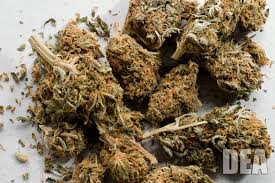Is Weed A Drug, In recent years, the debate over the classification and legality of cannabis, commonly known as weed, has intensified. One of the most fundamental questions in this debate is, “Is weed a drug?” To address this question, it is important to consider the definition of a drug and how cannabis fits into that definition.
What is a Drug?
In medical and scientific contexts, a drug is typically defined as any substance that, when introduced into the body, alters its normal function or structure. Drugs can be used for therapeutic purposes, such as treating illnesses or alleviating symptoms, or they can be used recreationally for their psychoactive effects. The effects of drugs can vary widely, ranging from beneficial to harmful, depending on their use, dosage, and the individual’s health.
Cannabis: A Brief Overview
Cannabis sativa, the plant from which marijuana (weed) is derived, has been used for thousands of years for various purposes, including medicinal, recreational, and industrial. The plant contains numerous chemical compounds called cannabinoids, with tetrahydrocannabinol (THC) and cannabidiol (CBD) being the most well-known. THC is responsible for the psychoactive effects commonly associated with cannabis, while CBD has been studied for its potential therapeutic benefits.
Is Weed a Drug?
By the broad definition of a drug, cannabis qualifies as one. When consumed, whether through smoking, vaping, or ingestion, cannabis alters the state of the mind and body. The psychoactive effects of THC can lead to changes in perception, mood, and cognition, which fits the criteria for a drug. Additionally, cannabis can have therapeutic effects, such as pain relief or anti-nausea properties, further reinforcing its classification as a drug.
Legal and Social Implications
The classification of cannabis as a drug has significant legal and social implications. In many parts of the world, cannabis remains classified as a controlled substance, leading to restrictions on its use and distribution. However, there is a growing movement towards legalization and decriminalization, driven by changing attitudes towards cannabis and increasing recognition of its potential benefits.
In regions where cannabis has been legalized, its use is typically regulated similarly to other drugs, with guidelines for safe consumption and restrictions to prevent misuse. Medical cannabis, in particular, is prescribed by healthcare providers for specific conditions, underscoring its recognition as a legitimate therapeutic drug.
Conclusion
In conclusion, weed is indeed a drug by the standard definition. Its effects on the mind and body, combined with its potential for therapeutic use, align with the characteristics of drugs. However, the classification and regulation of cannabis are evolving, reflecting a growing understanding of its benefits and risks. As societal attitudes continue to shift, the discussion around cannabis and its status as a drug will likely continue to evolve as well.
You Might Also Like These:



